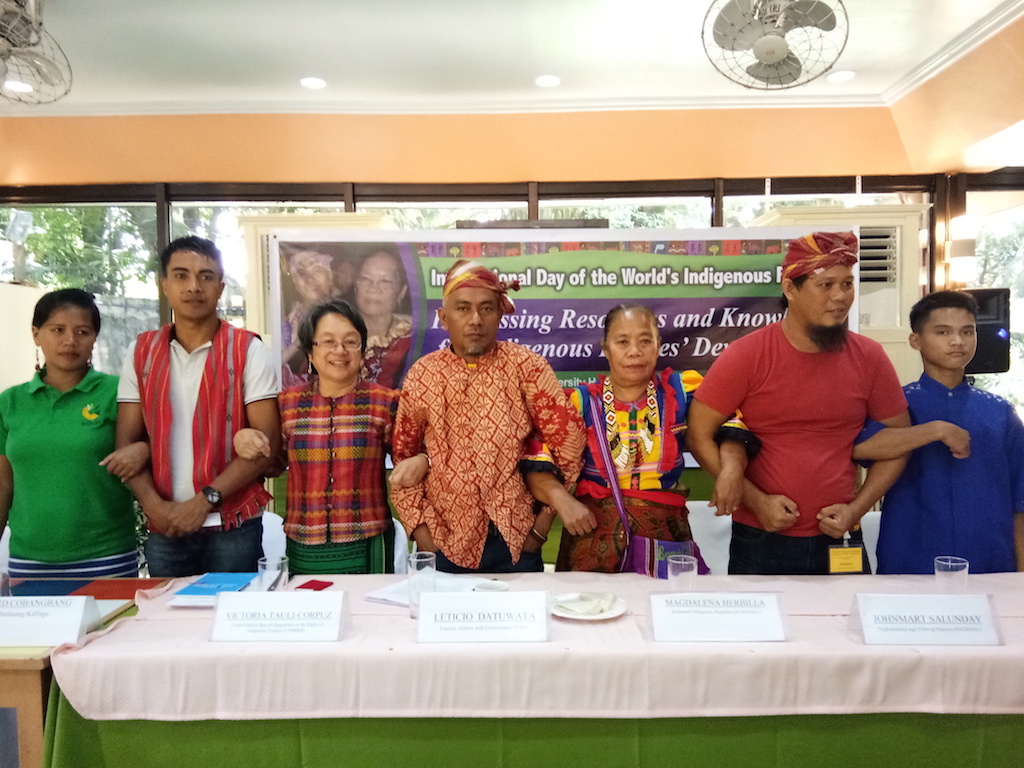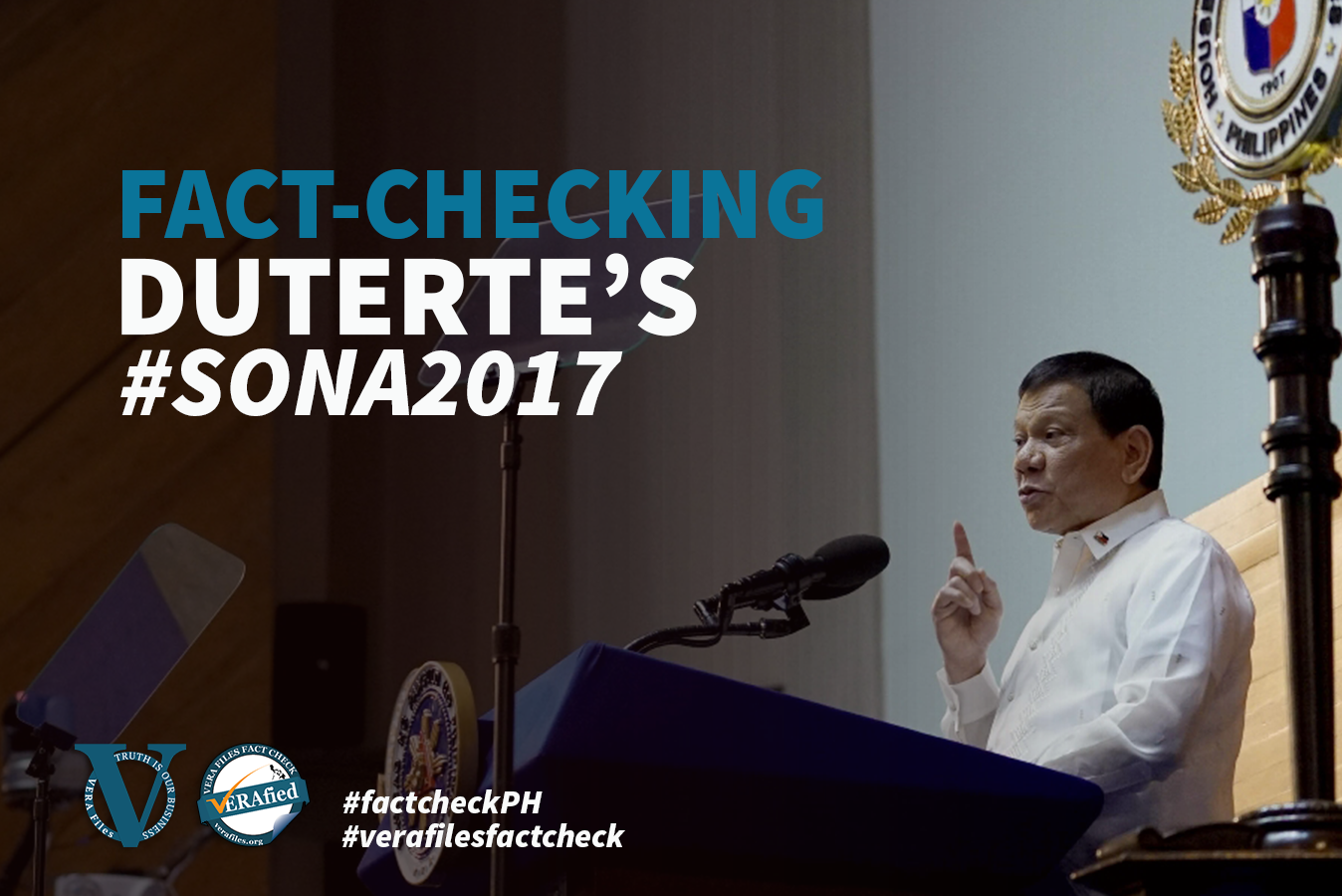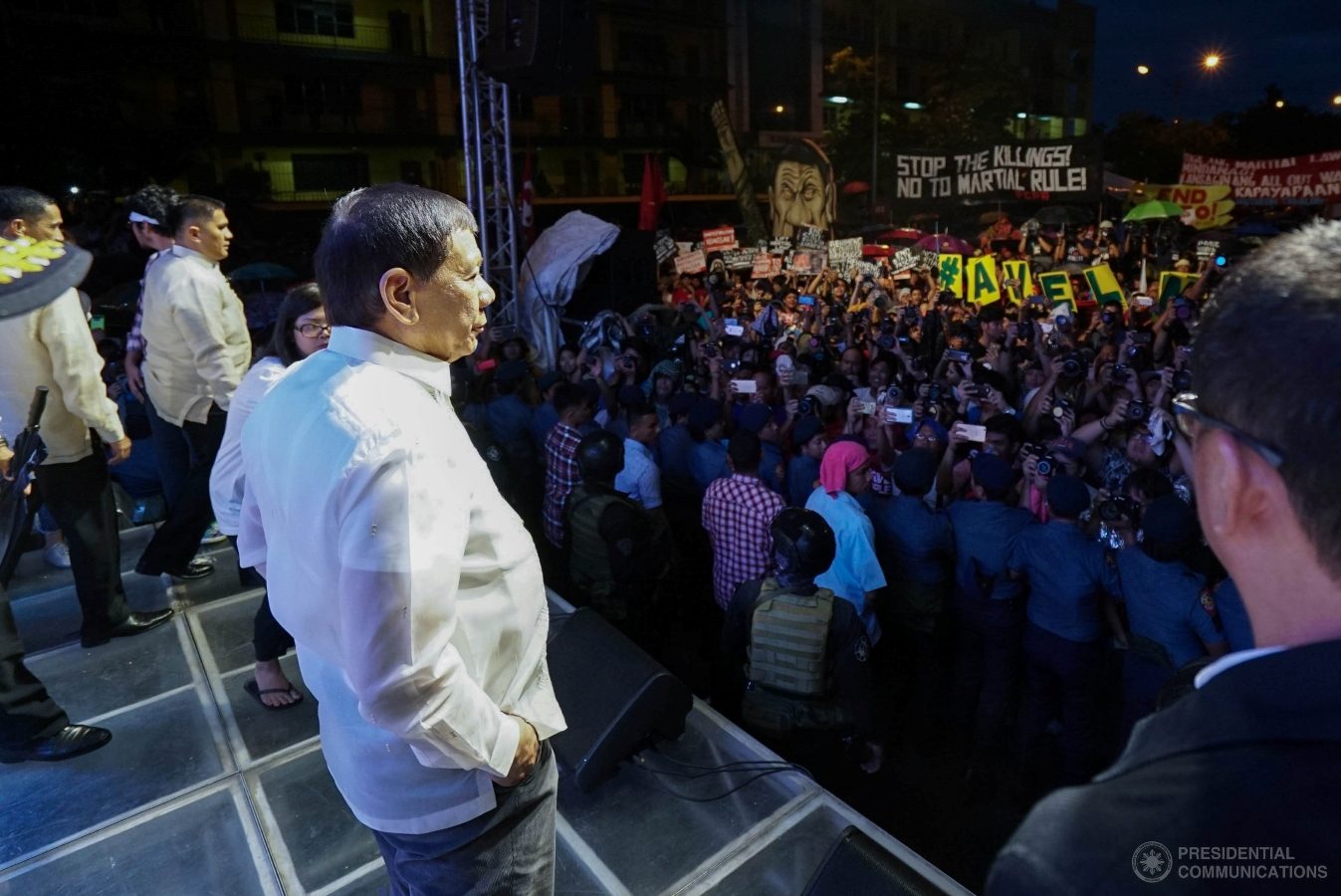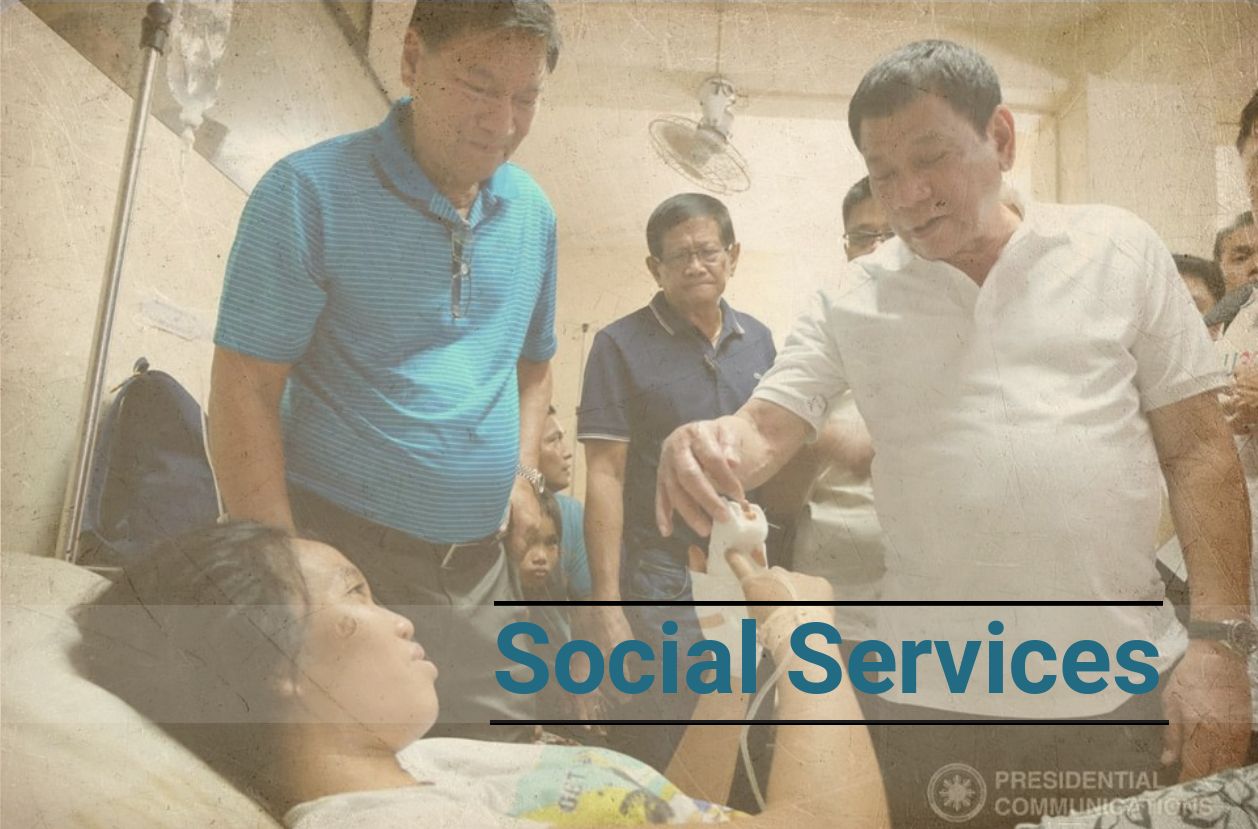Two weeks after President Rodrigo Duterte threatened to bomb Lumad schools for allegedly spreading subversive ideas, Indigenous Peoples (IP) groups are pushing back, demanding that their rights be protected.
The government, they said, should be serious in implementing Republic Act No. 8371, or the Indigenous Peoples Rights Act (IPRA), a law enacted 20 years ago.
Despite two decades of IPRA, their lives have not improved. Instead, indigenous groups say they continue to be “subjected to various forms of human rights violations, including extrajudicial killings and displacements.”
“While there is a law that clearly defines the rights of indigenous peoples, their rights continue to be disrespected and violated,” some 103 IPs from 39 communities across the country said in a joint statement issued on Wednesday, August 9, to mark the International Day of World’s Indigenous Peoples at the University of the Philippines Diliman.
Proper implementation of IPRA is key, they pointed out.
“It’s not a matter of (IPRA) being wrong,” Victoria Tauli-Corpuz, United Nations Special Rapporteur on IP rights, said during a forum at UP on the same day. “They’re just not implementing the law as they should,” she said.
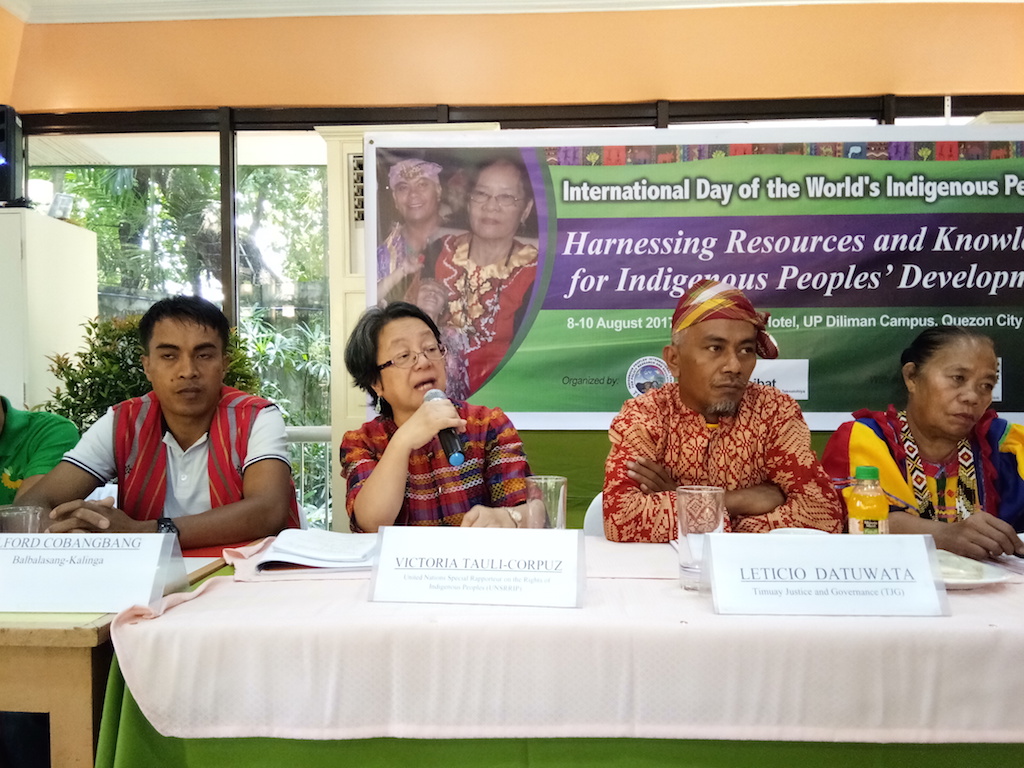
In his second State of the Nation Address (SONA) last July 24, Duterte mentioned “Lumad” just once, and not to discuss policy but as part of his tirade against the communist insurgents.
In a press conference following his SONA, the president was more hostile, claiming that Lumad community schools, operating without permits from the Department of Education, have been teaching children to rebel against the government.
“I will use the Armed Forces, the Philippine Air Force. Talagang bobombahin ko ‘yung mga… lahat ng ano ninyo (I will use bombs on all of you),” the president threatened.
Malacañang, through Communications Assistant Secretary Marie Banaag, later said that Duterte “does not intend to bomb Lumad children” and that “he was referring to structures and not to children.”
Various groups slammed the president for his remarks, and IP organizations for their part lamented being the unintended victims of conflicts.
“We have been greatly affected by wars which are not ours,” the statement released by IPs said, as it censured cases of violence and alleged extrajudicial killings of IPs, especially those who oppose mining activities.
At the forum, Tauli-Corpuz challenged the government to do its job and protect IPs from violence.
“It’s up to the government to deliver to the IPs in terms of protecting them if they are fighting for their rights to their lands, as well as not displacing them and bringing in mining companies,” she said.
Earlier in the week, some 109 Lumad students from Caraga and Davao Regions attended “bakwit schools” or alternative learning venues as a symbol of protest against increased military attacks in Mindanao, which has been placed under where Martial Law since May 23.
What previously were dormitories at the UP Diliman International Center now serve as temporary classrooms for Lumad children by day and sleeping quarters by night.
The first day of “bakwit school” opened with Araling Panlipunan classes, where students of the Mindanao Interfaith Services Foundation Inc. (MISFI) Academy were divided into groups and made to interpret whether through poetry or play, their own grasp of the Mindanao situation.
No matter the form, violence was a popular theme in the children’s presentations. Some groups imitated how paramilitary groups illegally arrested volunteer teachers, mistaking them for communist rebels.
Red-tagging has been a major cause for concern for IPs who often get caught in the crossfire – sometimes literally – in the decades-old war between communist rebels and government.
Titay Bleyen Leticio Datuwata of the Mindanao Peoples’ Peace Movement lamented how leftist groups would “deceive IPs for their own gains.
“Pero ang akin naman, kung sino man ang naimpluwensiyahan o na-brainwash, we do not talk of our difference, we talk of our commonality. I-abante natin ang sarili natin, ‘wag na tayo magpalinlang (But for me, whoever is influenced or brainwashed, we do not talk of our difference, we talk of our commonality. We should promote our own interests and not be deceived),” he said.
Volunteer teacher Mishiel Bayacato for her part, said coming to Diliman was to make sure their voices are “loud enough” to be heard by President Rodrigo Duterte.
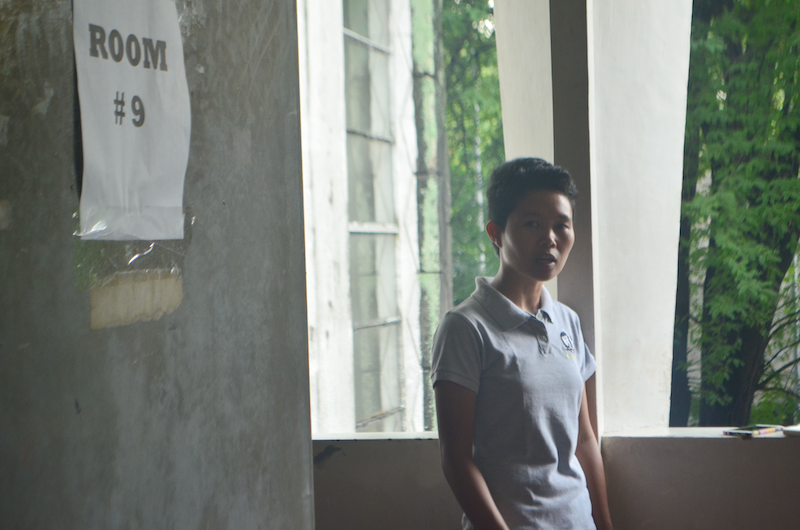
“Hindi naman talaga makaya yung mga panawagan kung doon sa Mindanao kasi andito ‘yung kataas-taasan natin (We can’t really make our calls in Mindanao be heard because the higher-ups are here),” said Bayaca, who is hoping Duterte would retract his statement about bombing Lumad schools.
Until then, Lumad children will have to bear the indignity and inconvenience of being displaced from their homes, divorced from their families and cultural identities.
“Siguro takot si Duterte na balang araw sa susunod na henerasyon, ‘yung maghawak sa institusyon at mangulo iyong mga bata na makabayan (Perhaps Duterte is afraid someday in the next generation, the nationalist youth will head the institutions),” she said.
